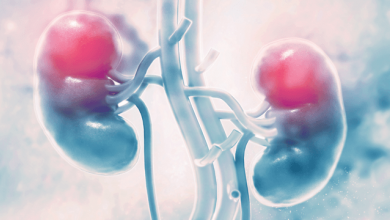Search results
Author(s):
Lee Kaplan
,
Fatima Cody Stanford
,
Filip Knop
,
et al
Added:
9 months ago
Radcliffe Medical Education bring together a distinguished panel of globally renowned experts who provide guidance on navigating the ever-changing landscape of obesity and metabolic health management.
Under the chairmanship of Prof Jason Halford(University of Leeds, UK), the panel includingDr Lee Kaplan(Obesity, Metabolism and Nutrition Institute, Massachusetts General Hospital, US),Dr…
View more
Sudden Cardiac Death in Athletes
Author(s):
Andrew D’Silva
,
Michael Papadakis
Added:
3 years ago
Article
Author(s):
Gautam R Shroff
,
Michelle D Carlson
,
Roy O Mathew
Added:
2 years ago
Author(s):
Cameron T Lambert
,
Pratik Sandesara
,
Ijeoma Isiadinso
,
et al
Added:
3 years ago
Familial hypercholesterolaemia (FH) is an autosomal-dominant disorder associated with mutations in the LDL receptor (LDLR) gene resulting in markedly elevated plasma low-density lipoprotein cholesterol (LDL-C) levels and premature atherosclerotic cardiovascular disease (ASCVD). Heterozygous FH (HeFH) (mutation in one allele) is associated with plasma LDL-C levels >190 mg/dl, whereas homozygous…
View more
Author(s):
Charles Knight
,
Saidi Mohiddin
Added:
3 years ago
The management of patients with hypertrophic cardiomyopathy (HCM) requires expertise in heart failure, cardiac imaging, electrophysiology, genetic testing and counselling, and in techniques that reduce left ventricular outflow tract obstruction (LVOTO). Following the initial description of alcohol septal ablation (ASA) in 1995,1 it has gained rapid acceptance and is now the most commonly chosen…
View more
Author(s):
Stefano Taddei
,
Rosa Maria Bruno
Added:
3 years ago
The concept of resistant hypertension (RH) has received great attention in the past years, mainly as a possible target population for innovative therapeutic strategies. An increasing number of original articles and commentaries have focused on the clinical significance, prognosis and treatment of this condition. Thus it is not surprising than even its definition is still a matter of debate,…
View more
Author(s):
Haider Aldiwani
,
Suzan Mahdai
,
Ghaith Alhatemi
,
et al
Added:
2 years ago
Author(s):
Louise Ziegler
,
Ulf Hedin
,
Anders Gottsäter
Added:
2 years ago
Author(s):
Michel Burnier
Added:
3 years ago
Hypertension (HTN) is the most prevalent cardiovascular risk factor in developed and developing countries.1 According to most recent guidelines, the goal of HTN management should be to reduce blood pressure (BP) to <140/90mmHg and even lower in patients with a high cardiovascular risk in order to lower the incidence of cardiovascular events such as stroke, myocardial infarction, congestive…
View more
Author(s):
Juan Tamargo
Added:
3 years ago
Type 2 diabetes (T2D) remains a major cardiovascular (CV) risk factor1–5 and it confers an approximately two- to threefold fold excess risk for coronary heart disease, including MI, stroke and heart failure (HF) in patients with and in patients without established cardiovascular disease (CVD).1,6–8 The prevalence of T2D among patients with HF is as high as 40–45% and that of HF in patients with…
View more















 « First
« First